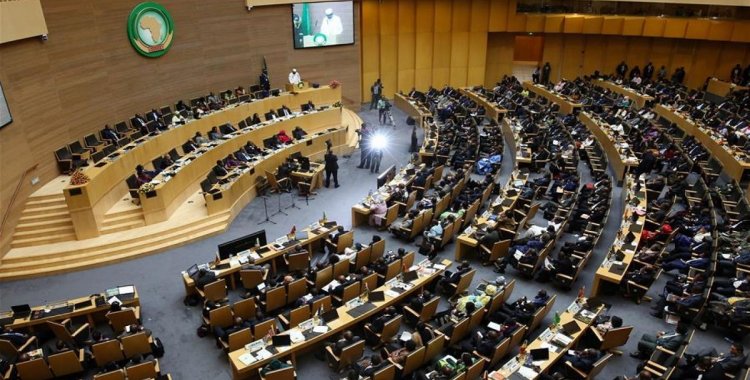The new commission, the first to be elected after the AU reform process started in 2016 under the supervision of Rwandan President Paul Kagamé, will have fewer commissioners and will be elected through a new merit-based system.
The African Union's leadership structure will be composed of eight members, including a Chairperson, a Vice Chairperson and six Commissioners, two fewer seats than in the previous Commission.
The organisation has launched an appeal to 54 member states, including Lusophone Angola, Cape Verde, Guinea-Bissau, Equatorial Guinea, Mozambique and Sao Tome and Principe, to nominate candidates for the disputed seats, with applications to be submitted by 4 September.
Besides the merit, the applications will have to gather the support of the regions where they come from and the selection criteria will have to respect the regional representativeness and gender equality, as well as the rotation between regions and countries in alphabetical order.
The posts will be divided equally between men and women, and regions whose candidates are elected to chair and vice-chair the committee will not be eligible for the six posts of commissioners.
For the time being, little is known about potential candidates for the leadership of the AU Commission, although it is expected that the current president, the Chadian Moussa Faki Mahamat, will stand for a second term.
In March 2020, a panel of senior officials from AU member states, representing the various regions of the continent, was formed to initiate and oversee the selection process, with the help of human resources experts.
This panel will draw up a shortlist of candidates who will then have to campaign to win two-thirds of the votes of the member states.
In the current structure of the commission, Angola is the only Portuguese-speaking country represented, with commissioner Josefa Leonel Correia Sacko taking over Agriculture and Rural Economy, a portfolio that in the new commission is joined by Blue Economy and Sustainable Environment.
In the economic area, there will also be a commissioner for Economic Development, Trade, Industry and Mining.
Political Affairs and Peace and Security will be merged into a single department.
The remaining portfolios are: Education, Science, Technology and Innovation; Infrastructure and Energy and Health, Humanitarian Affairs and Social Development.
The new committee will also have an unelected Director General.
"The effectiveness and efficiency of the new AU commission will depend on the merits of the people chosen for senior leadership. They will be charged with implementing the new rules and regulations of the commission and trying to create a working culture based on performance and accountability", points out, in an analysis of the electoral process, the "think thank" Institute for Security Studies, with representation in Addis Ababa.







